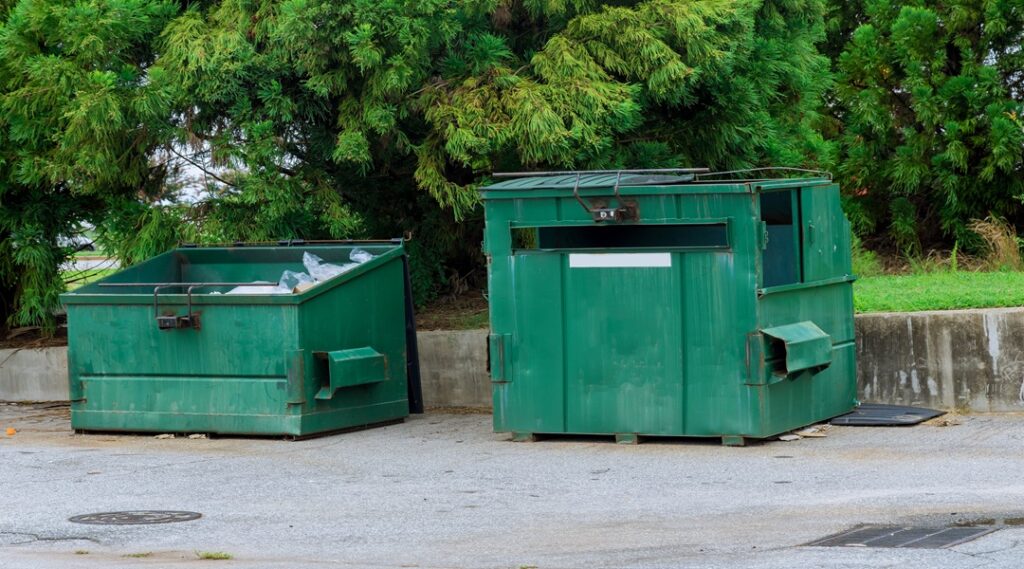Efficient waste disposal is a critical component of every project, whether it involves home renovation, construction, landscaping, or a large-scale commercial overhaul. With increasing focus on maintaining clean, safe, and compliant project sites, the need for streamlined waste solutions has never been greater. Among the most effective tools for managing debris in such scenarios is the use of dumpster rentals—a service that provides accessible, temporary waste containers tailored to different needs.
Dumpster rentals are more than just oversized trash bins. They are a solution that contributes to the productivity, safety, and environmental responsibility of any project. From the simplicity they bring to waste handling, to their scalability for both short-term and ongoing jobs, dumpster rentals are now a staple in both residential and commercial project planning.
In this article, we’ll dive into the details of how dumpster rentals work, what makes them such a valuable asset, how to choose the right dumpster for your needs, and why integrating them into your waste management plan can significantly improve your project’s outcome.
Understanding Dumpster Rentals and Their Core Purpose
At its core, a dumpster rental is a service that provides a temporary waste container for collecting and transporting debris from a specific site. These containers come in a variety of sizes and are typically delivered by a service provider, then picked up once full or after a designated period.
The primary appeal of dumpster rentals lies in their ability to contain large volumes of waste—often too much for regular trash collection services to manage. Instead of making multiple trips to a landfill, you fill the dumpster on-site, and the rental provider takes care of disposal.
What sets dumpster rentals apart from permanent waste solutions is their flexibility. They’re ideal for jobs with a defined start and end point, such as home remodeling, roofing replacements, office renovations, estate cleanouts, and more.
The Key Advantages of Choosing Dumpster Rentals
The popularity of dumpster rentals continues to grow, and it’s easy to see why. Let’s explore some of the major advantages this service offers:
1. Simplicity and Convenience
Dumpster rentals simplify waste management by removing the need for constant trips to disposal facilities. The process is easy: you schedule a drop-off, load the waste, and the provider handles the rest. This allows you to focus on the actual work instead of worrying about trash logistics.
2. Time and Labor Efficiency
Time is one of the most valuable resources in any project. With a dedicated container on-site, workers spend less time managing debris and more time on core tasks. By reducing the back-and-forth associated with traditional disposal, dumpster rentals save both time and manpower.
3. Improved Safety
Keeping a clean site isn’t just about aesthetics—it’s about reducing risk. Loose debris, sharp objects, and scattered waste can be hazardous. A dumpster offers a single, secure location for all refuse, helping keep the site organized and injury-free.
4. Cost-Effective Waste Disposal
Though some might view dumpster rentals as an extra expense, they often lead to cost savings when compared to alternatives. By consolidating waste removal into a single service, you avoid fuel costs, disposal fees, and potential fines for improper dumping.
5. Environmental Responsibility
Reputable dumpster rental providers typically adhere to local waste management regulations and offer recycling services. This ensures materials are properly sorted and disposed of, minimizing the environmental impact of your project.
Choosing the Right Dumpster for the Job
Selecting the right dumpster isn’t a one-size-fits-all decision. Different projects require different capacities and types of containers. The size of a dumpster is measured in cubic yards, and rental companies typically offer a range that includes:
- 10-yard dumpsters – For small jobs like garage cleanouts or bathroom renovations.
- 20-yard dumpsters – Common for moderate residential remodels and roofing jobs.
- 30-yard dumpsters – Suitable for larger renovations, home additions, or small construction sites.
- 40-yard dumpsters – Ideal for major construction, commercial cleanouts, or demolition projects.
Understanding the scope and scale of your project will help you choose the most cost-efficient and practical option. It’s also wise to consider the type of material being discarded. Heavy materials like concrete or asphalt may require smaller dumpsters due to weight restrictions, while lighter debris may allow for larger loads.
What Can Go Into Dumpster Rentals?
Most general waste types are permitted in dumpster rentals, but there are always guidelines to follow:
Allowed materials often include:
- Household junk (furniture, boxes, appliances)
- Construction debris (wood, drywall, tiles, nails)
- Yard waste (branches, leaves, dirt)
- Roofing materials (shingles, underlayment)
- Non-toxic materials (paper, cardboard, plastic)
Prohibited items usually include:
- Hazardous chemicals or solvents
- Batteries and electronics (in some areas)
- Asbestos-containing materials
- Flammable liquids
- Tires, paint, and medical waste
Before booking your dumpster, it’s essential to review the provider’s specific list of do’s and don’ts. Following disposal guidelines not only ensures legal compliance but helps avoid extra charges or penalties.
Preparing for Your Dumpster Delivery
To make the most of your rental period, some simple preparation steps go a long way:
1. Choose the Right Location
Place the dumpster on a flat, solid surface like a driveway or parking lot. Make sure it’s easily accessible for loading and for the delivery truck. Avoid soft surfaces like grass, which may be damaged by the dumpster’s weight.
2. Clear the Area
Remove obstacles such as parked cars, low-hanging branches, or construction equipment from the placement site. The driver needs a clear space to safely lower the container.
3. Avoid Overloading
While it’s tempting to use every inch of space, dumpsters have a maximum fill line and weight limit for safety during transportation. Exceeding these may result in overage fees or delays in removal.
How the Dumpster Rental Process Works
The process of renting a dumpster is designed to be straightforward:
- Request a Quote or Book Online: Most rental providers offer online booking or phone consultations to help you select the right dumpster.
- Delivery and Placement: The container is dropped off at your chosen location, often with same-day or next-day service.
- Fill at Your Own Pace: You’re free to load waste according to your schedule within the rental period (typically 5–10 days).
- Schedule Pickup: Once the dumpster is full or the project is finished, the provider collects the dumpster and handles disposal.
Throughout the process, customer support is available to answer questions, make adjustments, or extend rental terms as needed.
Dumpster Rentals for Businesses and Contractors
For businesses, dumpster rentals are an operational necessity. Construction companies, roofing contractors, landscapers, property managers, and real estate firms all rely on these services to manage debris quickly and effectively.
Commercial dumpster rentals allow companies to meet deadlines, adhere to safety standards, and stay compliant with local regulations—all while minimizing disruptions to their workflow. They also enable better site organization and can be scheduled on a recurring basis for long-term projects.
Whether it’s a one-time office cleanout or ongoing construction at multiple job sites, dumpster rentals offer the adaptability that commercial clients demand.
Sustainability and the Future of Dumpster Services
As the world becomes more environmentally conscious, the waste management industry—including dumpster rentals—is evolving. Many providers are embracing greener practices such as:
- Sorting and recycling services
- Waste stream analysis
- Partnering with eco-friendly landfills and recycling centers
- Offering reusable containers or compost-specific bins
These practices help divert reusable materials from landfills and reduce the overall environmental impact of large projects. Customers who prioritize sustainability can often find rental companies that align with their values, providing both convenience and conscience in one package.
Conclusion
When it comes to effective waste disposal for projects of any size, dumpster rentals provide a level of convenience, cost-efficiency, and environmental responsibility that few alternatives can match. Whether you’re managing a home renovation, cleaning up after a storm, or leading a multi-phase commercial construction job, having the right dumpster on-site can significantly improve your workflow and outcomes.
By offering flexible sizes, safe containment, and reliable haul-away services, dumpster rentals simplify one of the most complex and overlooked aspects of project management—waste disposal. Partnering with a professional rental provider ensures that debris is managed efficiently, legally, and with minimal disruption to your schedule.
So before your next big job begins, consider how dumpster rentals can help you stay clean, compliant, and on track from start to finish.

































